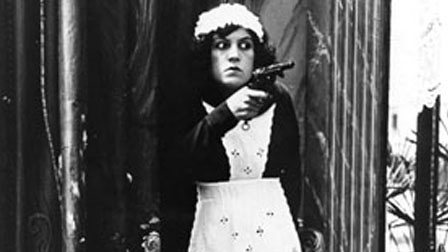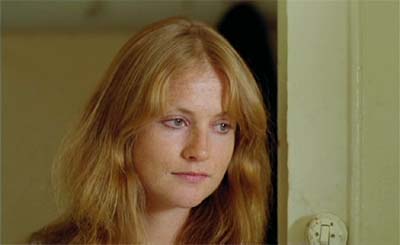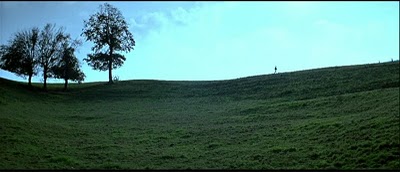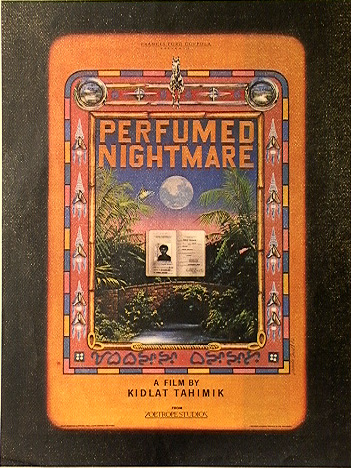From the October 15, 1980 issue of The Soho News. I should note the influence on my viewpoint of sexual politics in this article exerted by Sandy Flitterman, a feminist critic and one of the founding editors of Camera Obscura, with whom I was living in Hoboken during this period (roughly, 1979-1983). I should also note that my swipe at Coppola provoked an angry call from Tom Luddy, who was working for Coppola at the time. — J.R.



Every Man for Himself
Directed by Jean-Luc Godard
Written by Jean-Luc Godard,
Anne-Marie Miéville, and
Jean-Claude Carrière
Gloria
Written and directed by
John Cassavetes
Tih Minh
Directed by Louis Feuillade


In the latest lovely, desperate film by one of the most brilliant filmmakers alive, Jean-Luc Godard’s Every Man for Himself should be seen by everyone interested in movies or in life, without hesitation or delay. There are more ideas here per cubic second than one could find in a month of Paul Mazursky (or Ingmar Bergman) “think” pieces, and for this reason alone, Godard’s latest comeback is worth an hour and a half of anyone’s time.
Don’t let yourself get tripped up by the unfortunate masculine English title. The French that it strictly translates, Save qui peut (la vie), is genderless, save for the feminine article preceding the parenthetical “life”. Read more
From the Chicago Reader (June 23, 2000); also reprinted in my book Essential Cinema. — J.R.

L’humanité
Rating *** A must see
Directed and written by Bruno Dumont
With Emmanuel Schotté, Séverine Caneele, Philippe Tullier, Ghislain Ghesquière, and Ginette Allegre.

One of my favorite Italian novels, long out of print in English, is Carlo Emilio Gadda’s That Awful Mess on Via Merulana, a sort of Roman police procedural from 1946 in which the central crime never gets solved. The book is so beloved in Italy that it’s known simply as Il pasticciaccio (“the awful mess”), and when Gadda died in 1973 at the age of 79, it had gone through several editions.
William Weaver, who did the 1965 English translation, wrote in the preface that “Il pasticciaccio occupies in contemporary Italian literature the position that Ulysses, Remembrance of Things Past, and The Man Without Qualities occupy in the literature of their respective countries.” He also noted that many of Gadda’s other fictional works are “unfinished, but not incomplete. Read more
From The Soho News, November 26, 1980. — J.R

The Perfumed Nightmare
A film by Kidlat Tahimik

An odd, elusive 1971 Filipino filibuster, a first feature that somehow disassembles more than it assembles, Mababangong Bangungot (The Perfumed Nightmare) has a nearly total absence of “technique” — pacing, composition, acting, rhythm, budget — that is inextricably bound up with its subject, an all-around ambivalence about American knowhow. This makes it intermittently sluggish to watch, and theoretically fascinating to think about. Combining autobiography with fantasy, “magical realism” with cornball folklore and enchantment (with American technology) with disenchantment, it’s as unremittingly screwball as a house built of chewing gum wrappers and cigarette packs.

Don’t go expecting anything remotely decadent, despite the fancy title: the movie is as pure and innocent as the driven snow. (Or almost — the filmmaker, unlike his movie counterpart, spent almost a decade in Europe.) Kidlat Tahimuik, who wrote, produced, directed, and stars in this doggedly homemade production, presents himself as the driver of a brightly painted taxi-bus in his native Filipino village. He’s the proud possessor of a transistor radio, whose broadcasts lead him to become the founder of a local Werner von Braun Fan Club. Read more










